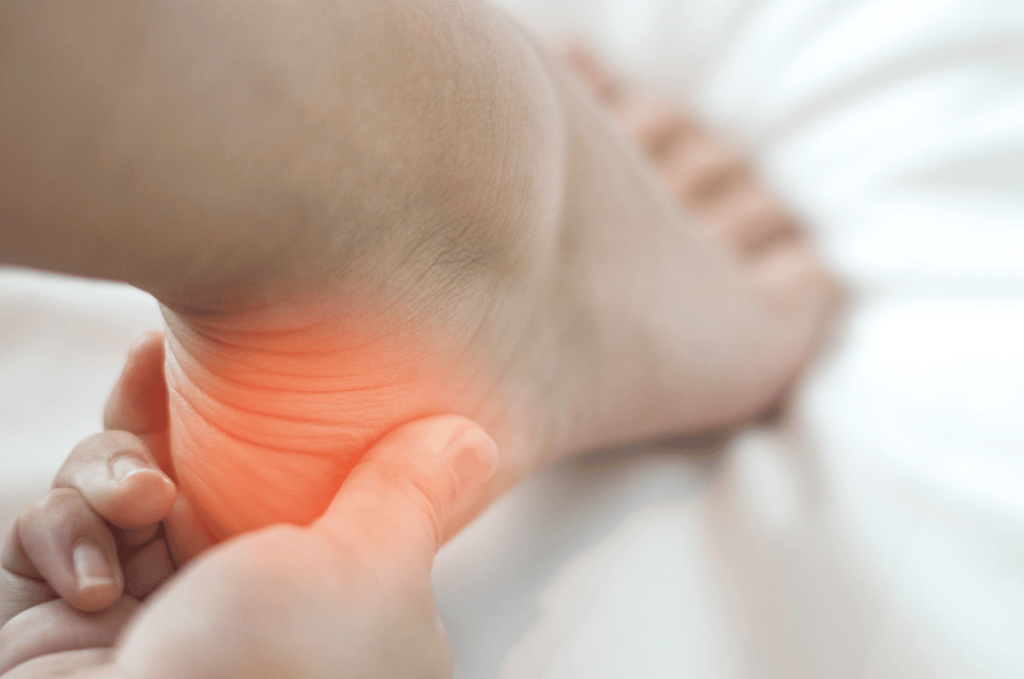Chiro for Plantar Fasciitis


Plantar fasciitis is a discomforting ailment that impacts the plantar fascia, a dense tissue band situated on the sole of the foot, linking the heel bone to the toes. It is one of the most common causes of heel pain, especially in runners and people who spend a lot of time on their feet.
Plantar fasciitis occurs when the plantar fascia becomes irritated and inflamed, causing pain and stiffness in the heel or arch of the foot. The pain is often worse in the morning or after long periods of standing or walking.
Symptoms of Plantar Fasciitis
The symptoms of plantar fasciitis can vary from person to person, but some of the most common signs include:
- Pain in the bottom of the heel or arch of the foot.
- Pain that is worse in the morning or after long periods of standing or sitting.
- Stiffness or aching in the foot or ankle.
- Tenderness or swelling in the heel or arch of the foot.
- Pain that worsens when walking or running.
- Pain that may improve with rest and stretching, but returns when you resume activity.
What causes plantar fasciitis?
Plantar fasciitis is caused by repetitive strain and stress on the plantar fascia. Some common causes of plantar fasciitis include:
- Misalignments in the spine, pelvis, hips and legs
- Overuse: Activities that involve repeated impact to the feet, such as running, jumping, or standing for long periods, can put strain on the plantar fascia.
- Poor foot mechanics: Flat feet, high arches, or an abnormal walking or running gait can put extra stress on the plantar fascia and lead to inflammation.
- Obesity: Excess weight puts additional strain on the feet, which can increase the risk of developing plantar fasciitis.
- Tight muscles: Tight calf muscles or Achilles tendons can limit ankle flexibility, which can put strain on the plantar fascia.
- Age: Plantar fasciitis is more common in people between the ages of 40 and 60.
- Certain activities: Sports that require quick changes in direction or hard landings, such as basketball or tennis, can increase the risk of developing plantar fasciitis.


How chiro for plantar fasciitis can help
Regular chiropractic treatment can help improve the alignment of the hips and spine, which can reduce pressure on the feet and help prevent or manage plantar fasciitis. Chiropractors are trained to assess and address misalignments in the musculoskeletal system that can contribute to foot problems.
When the hips and spine are misaligned, it can create an imbalance in the distribution of weight and pressure on the feet, leading to overuse and strain on the plantar fascia. Chiropractic treatment can help restore proper alignment and balance in the body, which can reduce stress on the feet and improve overall function.
Chiropractors may use a variety of techniques to address misalignments in the hips, spine and feet, including adjustments, soft tissue therapy, and exercises to improve posture and body mechanics. By improving alignment and reducing pressure on the feet, chiropractic treatment can help prevent and manage plantar fasciitis, as well as other foot problems.
Plantar fasciitis prevention and management
Prevention and management of plantar fasciitis involve a combination of Chiropractic treatment, lifestyle modifications and exercises. Here are some tips:
- Regular chiropractic treatment to ensure proper alignment of both the hips and spine to reduce the pressure on the feet.
- Warm up before, and stretch after exercise: Stretching can help prevent plantar fasciitis by improving flexibility and reducing strain on the plantar fascia.
- Gradually increase activity level: Increase the intensity and duration of physical activity gradually over time to avoid putting too much stress on the feet.
- Maintain a healthy weight: Maintaining a healthy weight can reduce the amount of pressure on the feet.
- Use ice and rest: If you experience pain or inflammation, try resting and icing the affected area.
- Wear supportive shoes: Choose shoes that provide good arch support, shock absorption, and cushioning.
- Custom orthotics: Custom orthotics can help redistribute pressure on the plantar fascia and improve foot mechanics.
Effective chiro for plantar fasciitis with Karrinyup Wellness Centre
The experienced chiropractors at Karrinyup Wellness Centre can help reduce the symptoms associated with plantar fasciitis by ensuring the spine and hips are aligned. Call the centre to book an appointment and find out how you can benefit from regular chiropractic treatment.

Other conditions that can be treated with chiropractic adjustments:
- Headaches
- Migraines
- Arthritic conditions
- Neck Pain
- Sciatica
- Back injuries
- Lower back pain
- Chronic Pain
- Sport Injuries
- Wrist, elbow and shoulder pain
- Foot, knee and hip problems
- Muscle Spasms and injuries
- Dizziness and vertigo
- Numbness, pins and needles
- TMJ Disorders
- Postural problems
- Whiplash
- Plantar fasciitis
- Stiffness
- Carpal tunnel
- Sports performance
- Decreased range of motion
Get in Touch
With Us
Whether you are a new client to us and have questions, or an existing client needing to re-book, the process is easy!
Call or email us today! We are here to help.
Frequently Asked Questions
Can chiropractic foot adjustments help with Plantar Fasciitis?
Yes, in conjunction with spine, pelvis, leg and knee adjustments, Chiropractic care can help with Plantar Fasciitis.
What do chiropractors do for Plantar Fasciitis?
Chiropractors may use a variety of techniques to address misalignments in the hips, spine and feet, including adjustments, soft tissue therapy, and exercises to improve posture and body mechanics. By improving alignment and reducing pressure on the feet, chiropractic treatment can help prevent and manage plantar fasciitis, as well as other foot problems.
What are the symptoms of Plantar Fasciitis?
Common symptoms of plantar fasciitis include: Pain in the bottom of the heel or arch of the foot; Pain that is worse in the morning or after long periods of standing or sitting; Stiffness or aching in the foot or ankle; Tenderness or swelling in the heel or arch of the foot; Pain that worsens when walking or running; Pain that may improve with rest and stretching, but returns when you resume activity.
Can Plantar Fasciitis result in ankle and foot pain?
Yes, as the causes of Plantar Fasciitis include improper joint action in the foot and ankle, Plantar Fasciitis commonly presents with foot and ankle pain.




